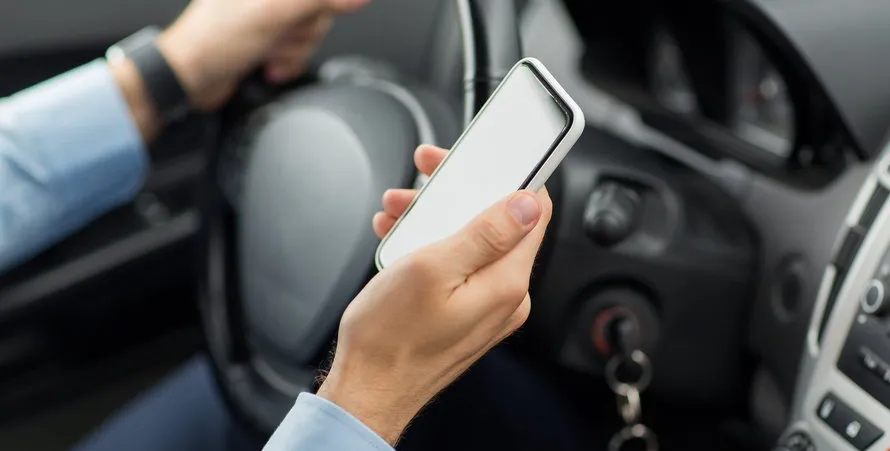The Dangers of Texting While Driving
- January 14, 2021 @ 3:36 pm
- Written by adminjbwp
- Categories: Accident | Auto Accidents | Florida

Text messaging on a cell phone while driving was associated with the highest risk of all cell phone related tasks. A recent CBS News/New York Times poll found 97 percent of Americans say texting and driving should be illegal. (April 30, 2010). 30 states, D.C. and Guam ban text messaging for all drivers. 11 of these state laws were enacted in 2010. (Sources: Insurance Institute for Highway Safety (IIHS) and State Highway Safety Offices). Several cities, including Chicago and Detroit, have enacted their own laws against using a handheld phone while driving, but nine states, including Florida, have “preemption laws” that prohibit local governments from putting such laws on the books. If you have been in a Tampa Bay accident that involved texting while driving, contact John Bales Attorneys to help with your accident claim.
Gov. Charlie Crist and the state’s top highway safety appointee endorse a ban on texting while driving (St. Petersburg Times, November 17, 2009), but this Spring another Florida bill to ban texting while driving failed to pass through the House of Representatives after receiving an overwhelming majority of the votes in the Senate (34-4). South Florida Rep. Ellyn Bogdanoff (R-Fort Lauderdale) explained that there are so many ways that drivers distract themselves on the road that she could not, in good conscience, support a bill that only addresses one of them. (Miami News, April 26, 2010).
It’s unclear exactly how many crashes or fatalities have occurred in Florida because of texting; law enforcement doesn’t collect the data during investigations unless a driver voluntarily admits to being distracted, but national studies have obtained the data that illustrates the dangers of texting while driving.<
- The No. 1 source of driver inattention is use of a wireless device. (Virginia Tech/National Highway Traffic Safety Administration)
- An August 2006 Teens today survey showed that teens considered sending text messages via cellphones to be their biggest distraction. (August 2006 Teens Today survey conducted by the Liberty Mutual Research Institute for Safety and Students Against Destructive Decisions)
- The number of monthly text messages reached 110.4 billion in December 2008, more than 10 times the number three years before. (Cellular Telephone and Internet Association)
- Cell phone use contributes to an estimated 6 percent of all crashes, which equates to 636,000 crashes, 330,000 injuries, 12, 000 serious injuries and 2,600 deaths each year. (Harvard Center of Risk Analysis).
- Four out of five drivers have been both guilty of, and witnesses to, Driving While Distracted. (Nationwide Insurance Survey, May 19, 2008)
- Driving while using a cell phone reduces the amount of brain activity associated with driving by 37 percent (Carnegie Mellon)
- Distraction from cell phone use while driving (hand held or hands free) extends a driver’s reaction as much as having a blood alcohol concentration at the legal limit of .08 percent. (University of Utah)
(↑FACT SHEET, September 16, 2009)
The National Safety Council released a report in January of 2010 that claimed 28 percent of all traffic crashes – that’s about 1.6 million crashes a year – are caused by drivers using cell phones or texting. It’s enough of a problem that U.S. Transportation Secretary Ray LaHood announced a federal ban on texting for commercial truck drivers in February.
Virginia Tech Transportation Institute’s research showed that text messaging, which had the highest risk, 23 times worse than driving while not using a phone, also had the longest duration of “eyes off the road” time – 4.6 seconds over a 6 second interval. According to the Federal Motor Carrier Safety Administration, when drivers traveling at 55 mph participate in text messaging and take their eyes off the road for that 4.6 second interval it is similar to that driver crossing the length of a football field while not looking out the windshield. (July 27, 2009). These results show conclusively that a real key to significantly improving safety is keeping your eyes on the road.
Even though texting while driving is not yet illegal in Florida, it is negligent. Florida drivers should not wait until this conduct is declared criminal before we use our better judgment and pay more attention to the road for the safety of others and ourselves. If you, a friend, or family member has been injured by a careless driver whose texting contributed to the traffic accident, you still can still pursue justice in civil court.
